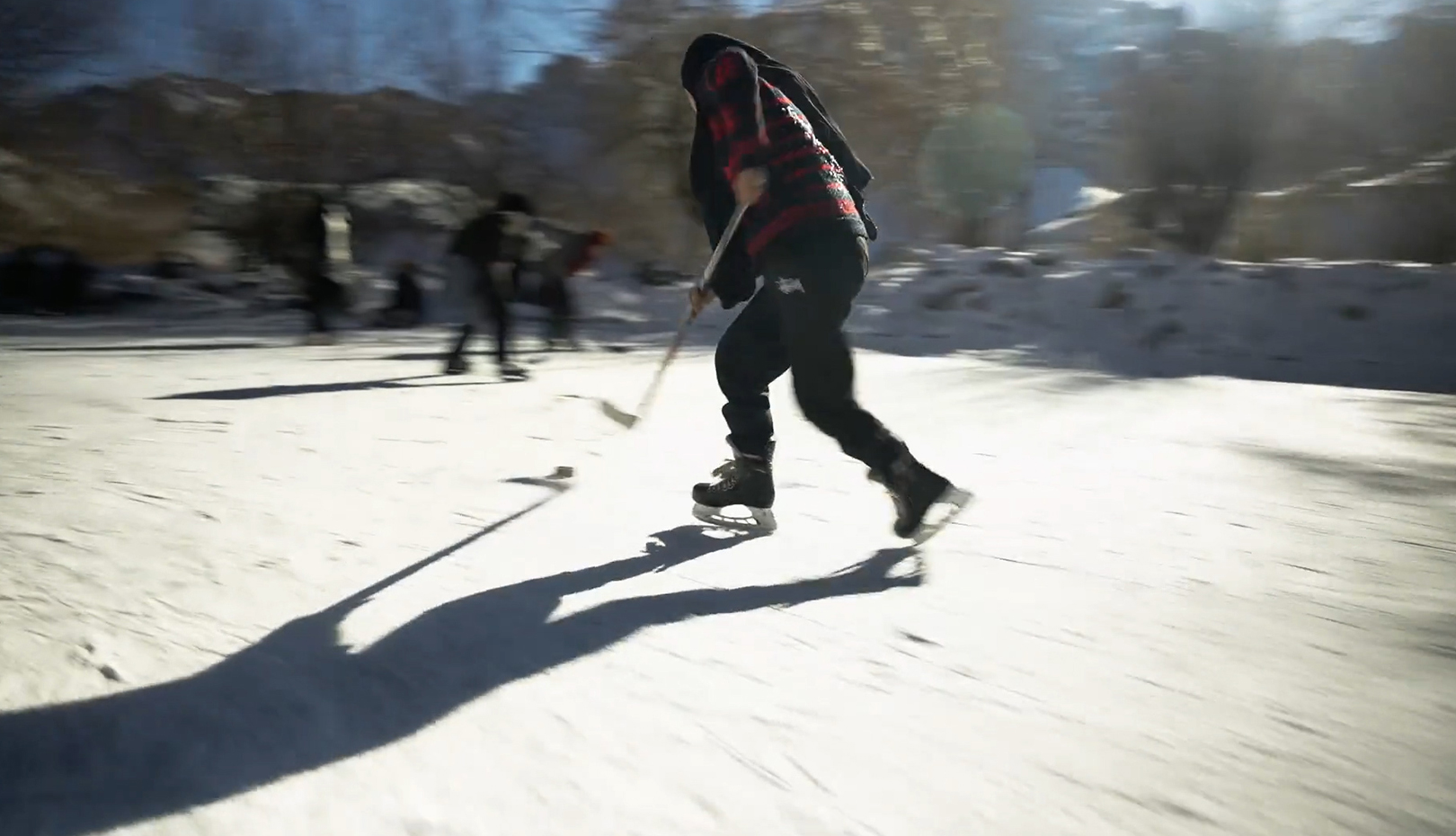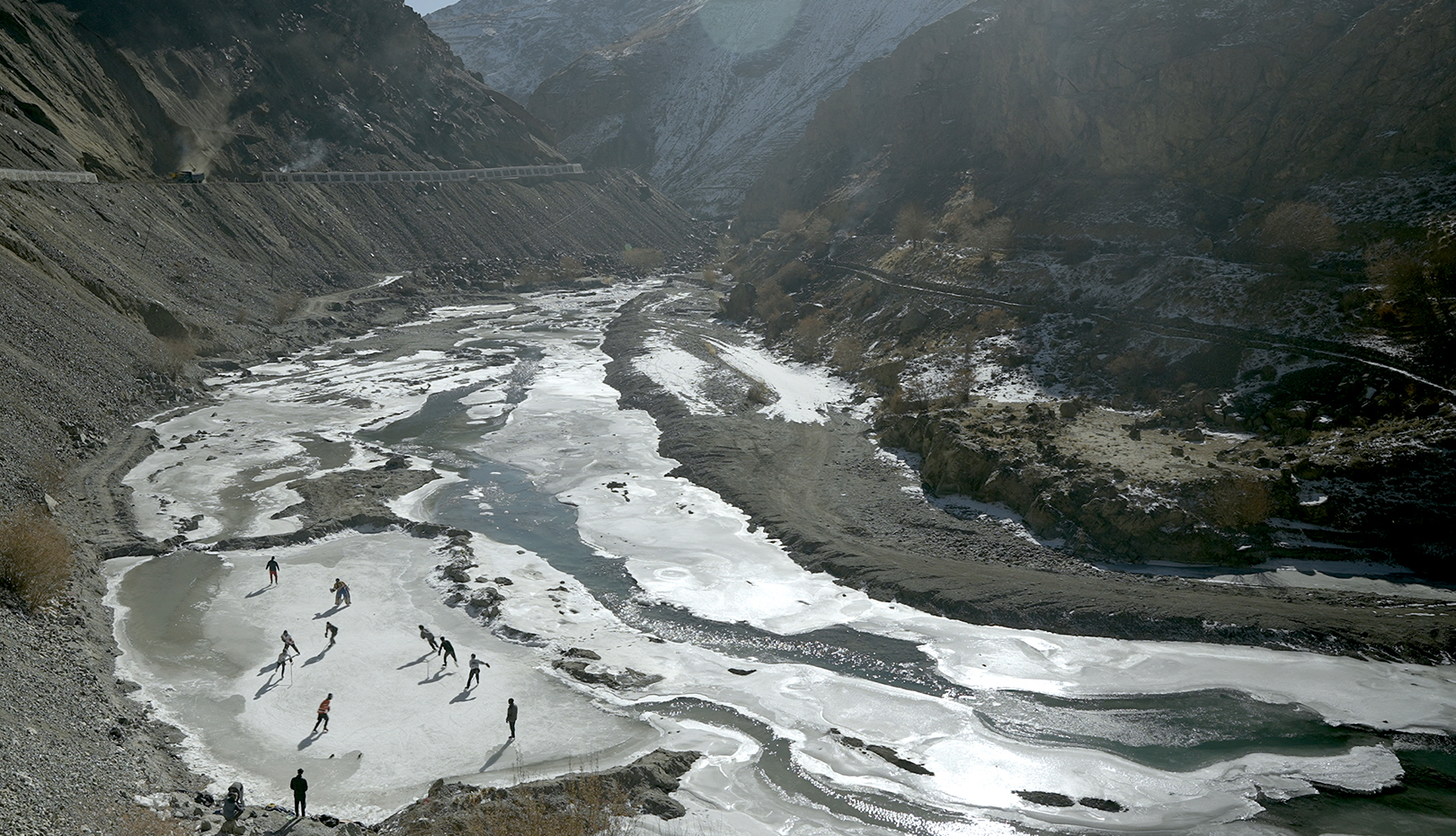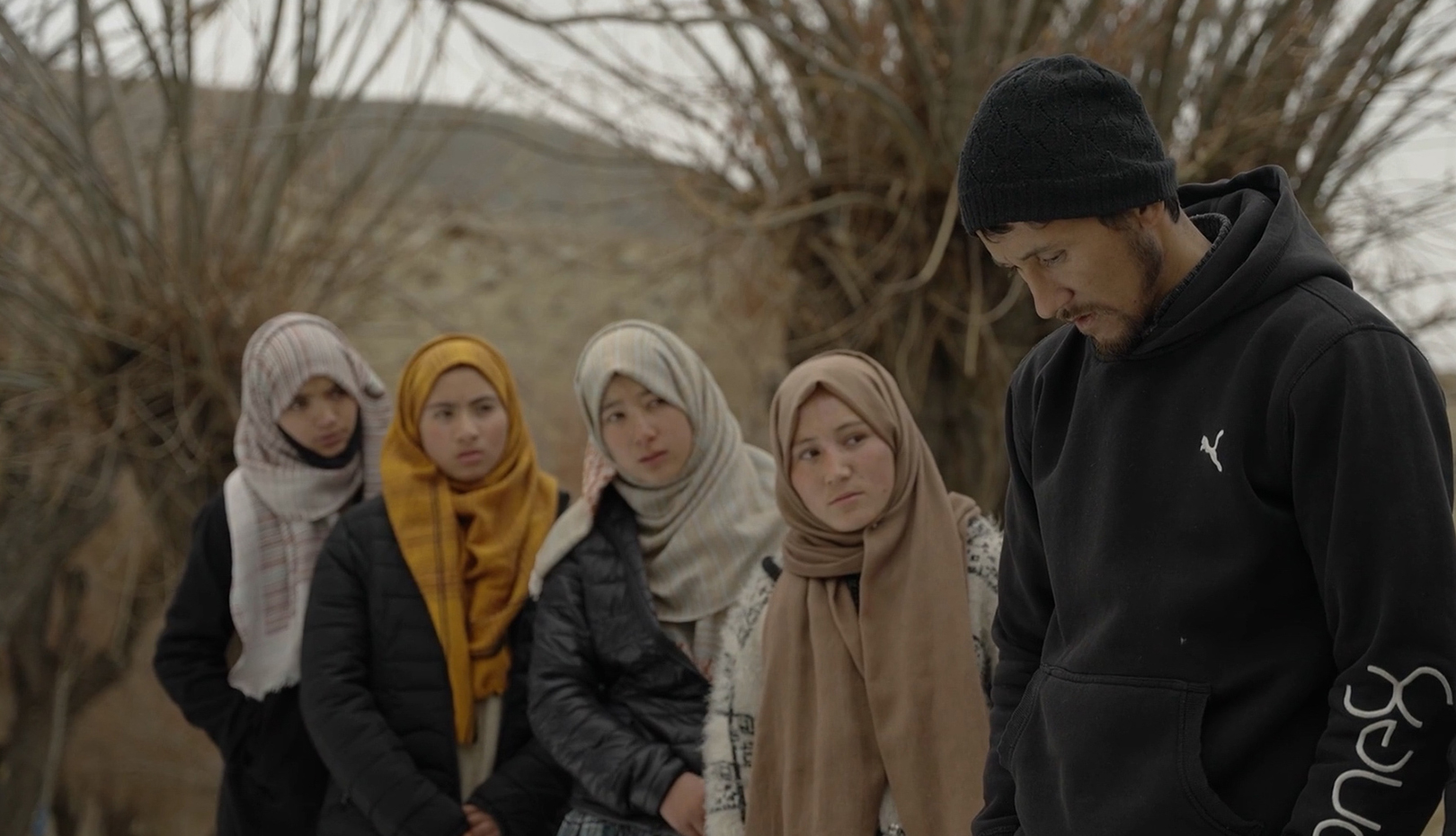Projects
Downhill Kargil
Nupur AGRAWAL
- India
- 75min
Synopsis
Amid the shrinking winters of Kargil, a Himalayan cold-desert on India-Pakistan border, Imtiyaz along with Mehroon and Aqeela form the first women ice hockey team in the town, called ‘Downhill Kargil’. As they embark on a journey to play for India, things start to change when Mehroon migrates to Delhi for her education.
Inhabited by a Shia Muslim indigenous tribal community and popularly known for the ‘1999 Kargil War’, Kargil is a remote, sleepy town that experiences extremely harsh and long winters turning Kargil into a ghost town.
Amidst this frozen landscape, something magical happens. As temperatures drop down to -25℃, a chirpy 15-year-old Aqeela and a sincere 18-year-old Mehroon fearlessly glide over the frozen pond. The sound of their skates cutting through the ice and their cheers echoing through the mountains bring Kargil alive once again.
Aqeela and Mehroon learnt ice skating from YouTube until they met a young 32-year-old Imtiyaz, an inexperienced but passionate coach. They together made the first women’s ice hockey team in Kargil town. By bringing in a culture of ice hockey, locals like Imtiyaz aim to keep the youth away from migrating, break the singular war narrative and transform the town into a winter sports hub.
While Mehroon is torn between her ice hockey dreams and her aspiration to get a better education in Delhi, Aqeela dreams of joining India’s armed forces as it has its own women ice hockey team. With shrinking winters and more girls from the team migrating every year, Imtiyaz continues to fight against all odds to keep the team together.
Set against the backdrop of migration and climate change, it is an intimate slice-of-life film told through personal journeys of Imtiyaz, Mehroon and Aqeela, who are trying to make their names in the world of Indian Women Ice Hockey.
Review
During my on-ground research I met a lot of women ice hockey players and astoundingly every time I heard their life story, it resonated so much with my own. That all of us are negotiating our dreams with our families, with society, felt very familiar to me.
Playing ice hockey is their source of happiness and strength, one that gives them freedom to be themselves; and so is documentary filmmaking for me. As I got to know them better, I felt like I am one of them, skating my way on thin ice, marching towards an uncertain future with a smile on my face. And, telling their story only becomes a vessel to tell my own.
I was 16 when I left my hometown for higher education. After 15 years of migrating for education and work, the idea of belongingness still evades me. What gives one a sense of belongingness, is it the surroundings one is brought up in, is it the people that make one feel as part of a community, is it one’s ambitions that keep them anchored? As Imtiyaz, Mehroon and Aqeela make their own choices on their journey, the film becomes my effort to closely observe and quietly seek answers to these questions in the pursuit of my own truth.
Mehroon and Aqeela mention jokingly, “If we are unable to pursue ice hockey, we will make our kids pursue it”, quickly realizing and laughing about how they themselves are kids right now.
In times of a majoritarian media, the film brings out a story from geographical and narrative fringes of India. This is an intimate slice-of-life coming-of-age film about these two teens and this young adult that observes how their ice hockey dreams intertwine with their personal lives.
Director
-

Nupur AGRAWAL
Credit
- Producer누풀 아그라왈 Nupur AGRAWAL



